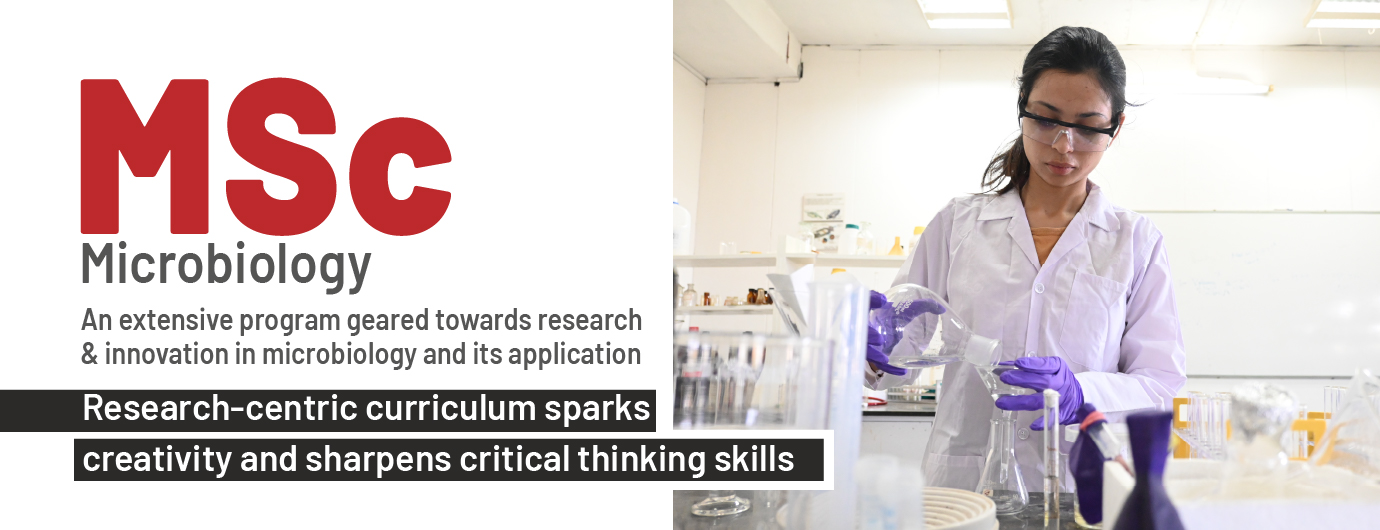The master’s degree program is divided into a mandatory course, discipline specific electives, and University elective area. The compulsory area includes, among other things, internships, and 6 months dissertation as a master’s project. In addition, you must choose university electives from a specified catalog. The elective area serves to acquire additional technical, interdisciplinary, and professional skills. Elective modules can be chosen from the entire range of Courses offered across NUV.
The Master of Science (MSc) in Microbiology is designed to equip students with a profound understanding of the fundamental principles and practical applications within the field. Rooted in a multidisciplinary approach, the curriculum is meticulously structured to seamlessly integrate theoretical knowledge with hands-on experience, thereby preparing graduates for diverse career trajectories in academia, industry, and research.
The core courses form the bedrock of the program, providing students with a solid grounding in essential such as Foundations of Microbiology, Microbial Biochemistry, Physiology and genetics and Research Methodology in Microbiology. These foundational courses lay the groundwork for a deeper exploration of specialized tracks, allowing students to tailor their academic journey based on individual interests and career aspirations.
Within the specialized tracks, students can choose from three distinct pathways. The Biotechnology and Genetic Engineering track delves into areas like Recombinant DNA Technology, Bioprocess Engineering, and Advanced Topics in Genetic Engineering. Alternatively, the Medical and Pharmaceutical Sciences track offers courses such as Pharmacology and Drug Development, Clinical Trials and Regulatory Affairs, and Molecular Medicine. For those interested in Environmental and Ecological Sciences, the track includes courses like Environmental Impact Assessment, Conservation Biology, and Ecological Modelling.
The program places a strong emphasis on practical training and research, offering laboratory rotations and opportunities to engage in research projects in collaboration with faculty or industry partners. The inclusion of advanced elective courses allows students to further tailor their education by selecting topics that align with their specific interests, such as Medical, Food and Agriculture Microbiology
A series of seminars on cutting-edge topics in Microbiology provides students with exposure to the latest developments in the field. The capstone experience involves presenting research findings in a public forum, showcasing the culmination of a student’s academic journey.
Complementing the academic curriculum is a focus on professional development, including career development workshops, networking events with industry professionals, and optional internships. The program also incorporates a mobility window, providing opportunities for international collaboration or participation in exchange programs.
The culmination of the MSc in Microbiology is marked by the successful completion and defense of a thesis, where students conduct independent research, demonstrating their ability to contribute meaningfully to the advancement of knowledge in the field. Graduates emerge from the program with a strong foundation in Microbiology, specialized expertise in their chosen track, and the practical skills necessary for success in the dynamic and evolving landscape of Microbiology.
Specialization in MSc. Microbiology-
Medical, Food and Agriculture Microbiology



